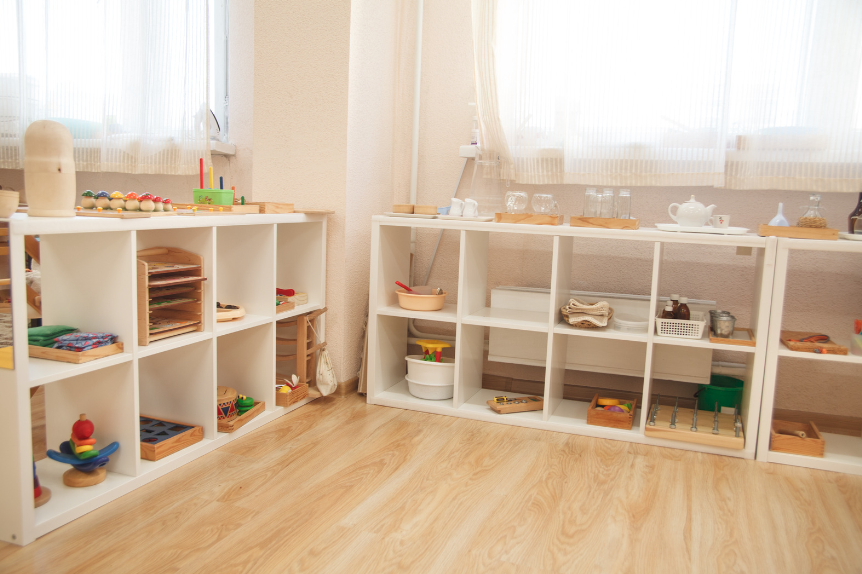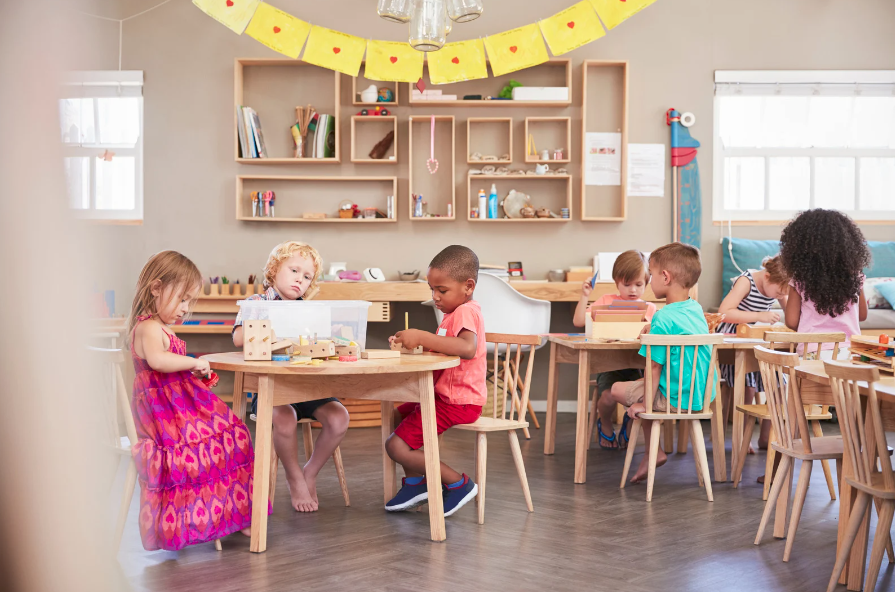
Is a parenting approach that encourages a partnership between you and your child. The child is encouraged to make choices based on internal willingness instead of external preasures. This type of parenting style asks you to become more aware of the behavior you model for your child, encourages compassion, welcomes emotions, and accepts the child as a whole, capable being. According to parents.com, the gentle parenting style is composed of four main elements: empathy, respect, understanding, and boundaries.
Is an educational approach that encourages a partnership between the teacher and your child. Children enter an environment that is prepared for them and work towards independence. Your child’s development is supported and nurtured by the Montessori teacher who observes your child and gives ‘lessons’ based on those observations and according to the stages of development.


The Montessori-prepared environment is lovingly designed for the child, recognizing the unique characteristics of all who enter. Attention is paid to the physical, emotional, and social well-being of your child, furniture is child-size, activities are geared towards the developmental stages of the children, love, and compassion are freely given. Teachers enjoy the children and engage in spontaneous and joyful moments with them. healthy and natural boundaries are put in place so children may feel safe, loved, and willing to explore. Children feel they belong in the classroom, they are free to choose work that they have been presented, free to ‘work’ on an activity, for as long as they feel like, and have the freedom to move about the classroom as they wish. As with gentle parenting, empathy, respect, understanding, and boundaries are key to Montessori.
Children are greeted with a handshake when they enter the classroom. Adults make eye contact when speaking with the children, a clear sign of respect within the classroom. This respect continues throughout the day as children are observed, lessons are given, and guidance is provided. Respect is consistently modeled for the children; their voices are heard and their opinions matter. As with gentle parenting, feelings are validated and explored, children are supported in a manner that works best for them – a hug, a lap, a high five, or holding space for emotion. Compassion, respect, and empathy are also nurtured between our students, fostering a warm and loving environment for all.
